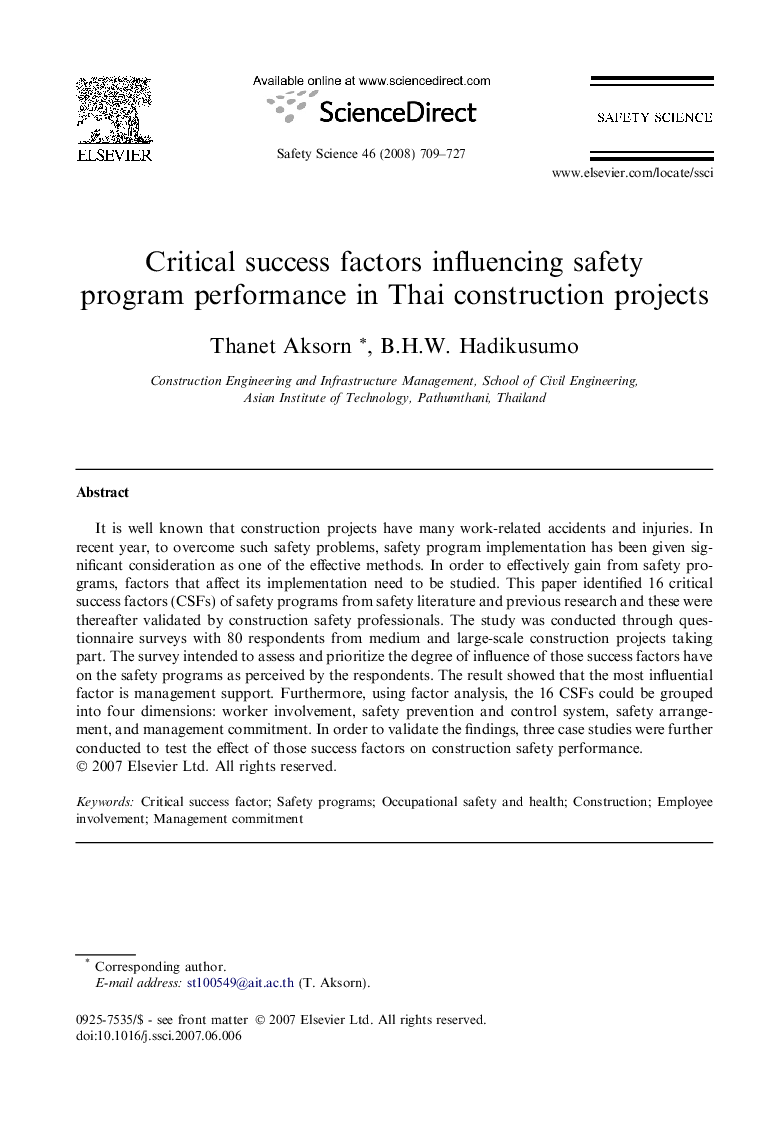| Article ID | Journal | Published Year | Pages | File Type |
|---|---|---|---|---|
| 590104 | Safety Science | 2008 | 19 Pages |
It is well known that construction projects have many work-related accidents and injuries. In recent year, to overcome such safety problems, safety program implementation has been given significant consideration as one of the effective methods. In order to effectively gain from safety programs, factors that affect its implementation need to be studied. This paper identified 16 critical success factors (CSFs) of safety programs from safety literature and previous research and these were thereafter validated by construction safety professionals. The study was conducted through questionnaire surveys with 80 respondents from medium and large-scale construction projects taking part. The survey intended to assess and prioritize the degree of influence of those success factors have on the safety programs as perceived by the respondents. The result showed that the most influential factor is management support. Furthermore, using factor analysis, the 16 CSFs could be grouped into four dimensions: worker involvement, safety prevention and control system, safety arrangement, and management commitment. In order to validate the findings, three case studies were further conducted to test the effect of those success factors on construction safety performance.
